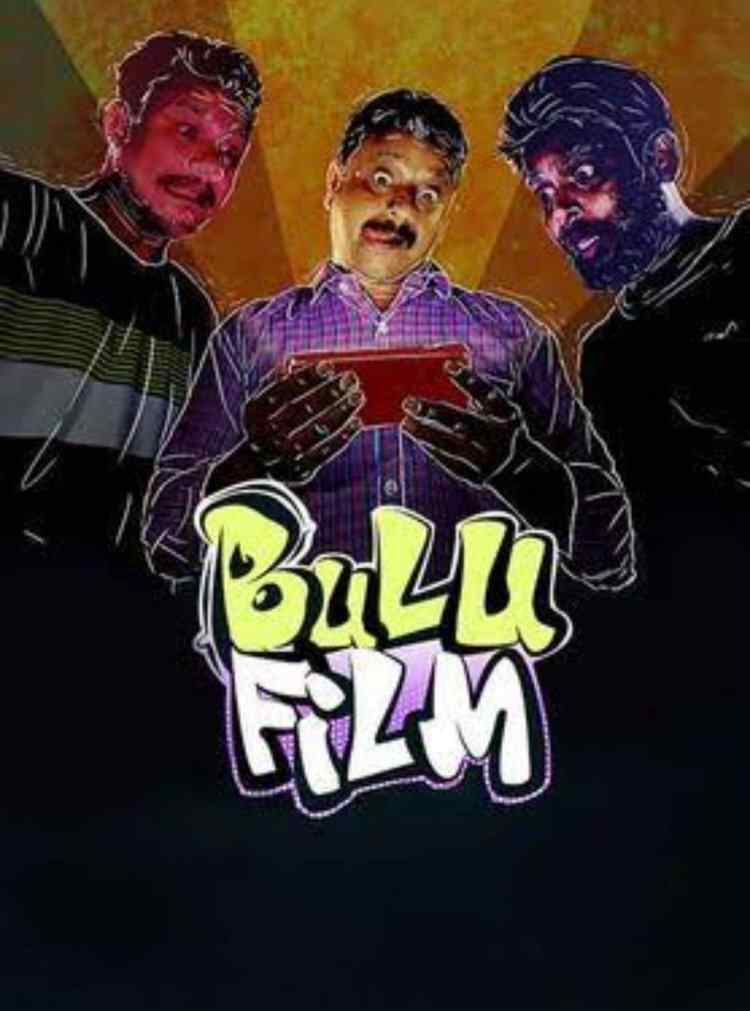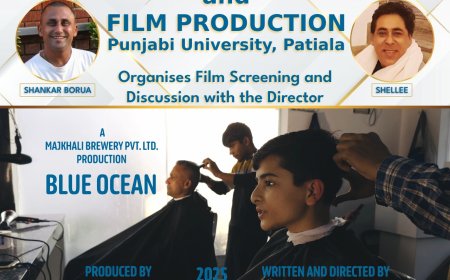BULU Film – Bold, Brave and a Powerful Attempt to Start a Conversation

As proven by his previous films, Shakira Ahibo Bokul Tolor Bihuloi and Goru, writer-director and actor Himanshu Prasad Das observes the society with keen eyes and very daringly and ably visits the terrains which are seldom visited by other filmmakers. His movies tackle bold and risky issues, but they do so in a way that uses humour in a distinctive way which makes the complexities of an issue popularly accessible.He always places his characters within pre-destined and peculiar predicaments that become a fertile ground for his social critique or commentary to flow.
The satire of Shakira Ahibo Bokul Tolor Bihuloi focused on the Bihuconomics of Bihu Sanmilans in Assam pitted against the backdrop of rural issues and every common and uncommon problem that we, as a community, are collectively facing. Meanwhile, Goru focused on the current polarisation of politics, ethnicity and religion and the helpless or the hopeless role of the state in regard to which the common citizens suffer. The themes of unemployment, social ignorance, and racial prejudice run common in both the movies and his latest Bulu Film belongs to the same staple of social satire but in a way that is also different from the rest. (For the sake of this discussion that is strictly confined to theatrical releases, we are not considering Das’ direct to online streaming release Hero here.)
Bulu Film chronicles the tale of three social misfits and occasional dimwits who are sometimes ahead of their times or sometimes behind it. One of them runs a store called Global Village, which, before being copied by others, had the first PCO (Public Call Office) or sold the first VCDs in their little village. The other drives a TATA Magic and carries passengers to and fro in the hope of owning a vehicle someday. His expectations are dashed as he couldn’t predict the dawn of the pandemic. And the third member of this group, a flamboyant persona, who used to work in a hotel in Goa, and was likely, laid off when the pandemic hit, and now kills his time doing nothing.
Financial hardships, familial obligations, and the need for self-respect that only money can provide drive the three troublemakers to devise a foolproof scheme to generate quick cash. The plan is - to shoot and produce pornographic content and upload them in the web for money. Because it is the only successful source of sustenance in desperate times such as the lockdown where no other jobs or work have clicked. However, the work isn't as simple as they had anticipated it for because there are problems individual, personal and societal. The conflict of the film, which started as economical in nature, goes on to enters the realm of gender, individuality, identity, freedom and choice. And thus, the film becomes broadly social in terms of its scope and significance.
The situation here, unlike Das’ previous movies, is an unforeseeable natural hazard that is beyond human control – the Covid-19 pandemic. And speaking of accessibility, Bulu Film is also an adult-rated film with some content that might be sexually graphic but on a broader level, it projects themes that are very universal in nature. The role of economics in changing and shaping up of gender roles, relations and perception, social belongingness and solidarity, individuality and identity, liberty and autonomy is the prime focus of the film here.
Then there are also thematic contrasts with his previous films. While the conflict of Shakira Ahibo Bokul Tolor Bihuloi was cultural, the conflict of Goru was ideological and here, in Bulu Film the conflict is rooted in economics and gender. We explore the stories of four households, which are being tried and tested by time. The real life catastrophe that has inspired the film has shattered the individual whose substantiality, absoluteness and exploitation is a common thread that runs parallel in all the four stories. Situation and love are also constantly at odds here, as seen through the characters of Chanku Niranjan Nath and Anamika Sarania, Himanshu Prasad Das and his wife, Apurba Barman and his nephew or Pranami Bora’s entire character arc.
The tension of the film mostly draws its source from the background of the narrative. Many of the events in Bulu Film occur behind us or without our presence. The character of Bulu is accused of misdoings that have happened without us witnessing. When the long planned act is finally being filmed, the security guard outside adds to the tension. Much of the day-to-day troubles of a family life, with a child being bet for smoking beedi, happen behind closed doors. The gloominess of the entire situation - we don’t see it but sense it.
The dialogues in Bulu Film are raw, honest and geographically specific, which gives the characters its believable personas and prevents the film from feeling distant. The well-written screenplay makes sure to keep you engaged in laughs throughout the entire run time with absolutely perfect comic timing between the three major characters of the film. And concerning its drawbacks, the second half of the film could have used a little trimming here and there to make it crisper.
Bulu Film begins with a very silly premise within the nerve of a situational comedy and then transitions into a serious drama where the characterizations evolve and grow complex, and then it finishes off with a tragic and depressing statement on social hypocrisy. How do people breed socially unacceptable practises? How do we view those who at the mercy of their bodies to buy their daily bread? Does choice exist without limits or it is an unaffordable and unattainable commodity? These are some of the dialectics of thought which the film encourages us to consider ourselves and ponder for long against the inhumane force of time. Bulu Film offers a socio-realist treatment to gender representation and also highlights the wider connotations of body politics related to the subject. It reflects the gaze in its blatantly crude truth without making any pretentious attempts to flip the gender dynamics.
Himanshu Prasad Das’s humanist approach to cinema here attempts to forgo a sordid reckoning and cultivate a sense of social sensibility while provoking an emotional dialogue within us. And this sensitive realization makes Bulu Film powerful cinema. You will enjoy the film for it is a laugh riot but you will also return back with an urge for self reflection.
There has been a lot of public backlash against a lovemaking scene between two lovers in the first half of the movie. While the need for and significance of that sequence in the novel can be justified philosophically in the subjective grounds of the characters, it also follows a fundamental storytelling device known as Chekhov's gun, which asserts that for a gun to be fired in the third act, it must first be established in the previous.
Bulu Film is bold. It is sensational and it is daring. Although some people would flatly reject it as offensive and insulting or having a self-serving purpose, the truth cannot be denied. You might not like it, but if you're brave enough, you will. My writing might be sentimental but the movie is not!
What's Your Reaction?

































































